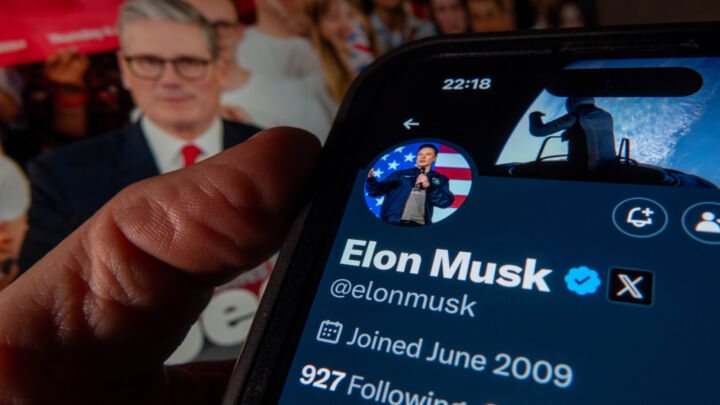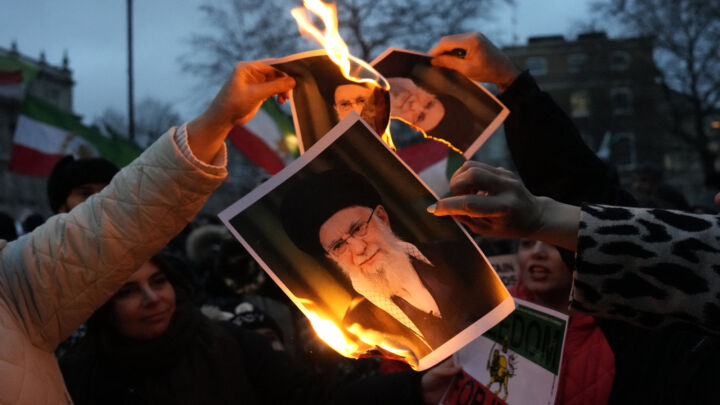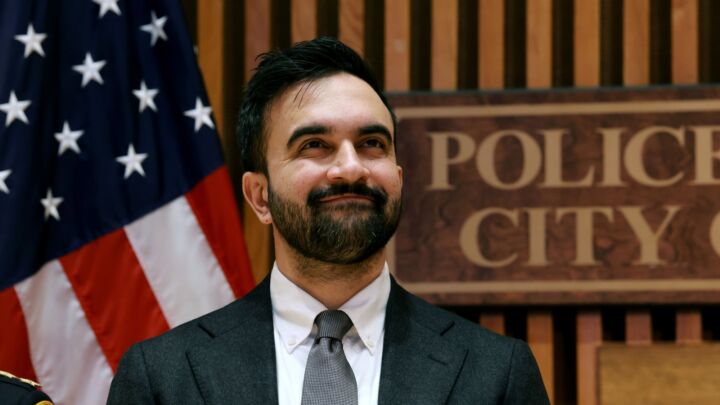Newcastle United: you’re not big and you’re not special
Newcastle United and their fans are touted as a nation apart, but in truth they're the same as everyone else.

Want unlimited, ad-free access? Become a spiked supporter.
Preposterous myths of modern football: Part Two. Last week it was the idea of the massive club, ie, a perennially unsuccessful club that still entertains delusions of grandeur because it won a few trophies in a bygone age when you could leave your door unlocked and footballers were real men called Stan or Wilf (1). This week I find myself compelled to debunk another whopping great myth – namely that the Geordies are a nation apart whose arcane culture cannot be understood by the rest of us. Sorry to keep banging on about Newcastle but, as Vic Reeves might say, I couldn’t let it lie.
Last Saturday a giant banner, bearing the slogan ‘Cockney Mafia Out’ was paraded inside St James Park. The ‘Cockney mafia’ in question consists of Mike Ashley, owner of Newcastle United, Dennis Wise, his director of football, and Tony Jimenez, who handles transfer deals. Suffice to say none of them is a proper Cockney, ie, born within earshot of Bow Bells. Ashley was born and bred in Buckinghamshire, Wise was born in Kensington and Jimenez was born in Brixton.
But, apart from revealing a poor grasp of geography, the real subtext of the banner is that Ashley and his cohorts are unable to grasp the Geordie Way. Ashley might have worn a replica shirt with ‘King Kev’ emblazoned on the back, but this is just a populist stunt. By forcing out Kevin Keegan, the man they called the ‘Geordie Messiah’ (another preposterous myth, of course, but I’ll let that one pass for now), Ashley demonstrated that Cockneys, ie, anyone from south of Birmingham, just didn’t understand Newcastle fans. Or, as one banner in St James Park put it: ‘YIZ DIVINNT KNAA NOWT ABOUT GEORDIES, ITS WOR CLUB, LERRIT GAN, NIVVA RETORN. GORRIT.’ (Translation: Go away, you’re not from round here.)
When Kevin Keegan was appointed Newcastle boss for the second time he milked the myth of Geordie exceptionalism for all it was worth. ‘It’s a big job. It’s a great club and people outside the region don’t understand it’, said Keegan. ‘You listen to the phone-ins and people talking about it. They’re people who don’t understand this place, they don’t understand the Geordies. I do. This is my third time here, my dad was a Geordie so I understand them and I know what they want.’
So what is it about Geordies that only King Kev or Wor Alan could possibly understand? What makes them so special? Is it that they don’t speak proper like wot we do? All that ‘ganning’ and ‘howay’-ing; ‘wor’ this and ‘why aye’ that. It’s not the Queen’s English, is it?
But while Geordie’s have a distinctive accent – some might call it a dialect – it’s not a different language. They might use regional slang words but the language is still recognisably English. Indeed, as academic research has shown, distinctive Geordie colloquialisms are dying out. A study of taped interviews with people in Gateshead recorded in the late 1960s revealed many words and phrases which would be incomprehensible to young people in Newcastle today (2).
Another study by Dr Bill Lancaster at Northumbria University also showed that the de-Geordification process is advancing apace. ‘We are losing lots of words at quite an alarming rate. We are also gaining new words from modern slang, but not as many as we are losing’, said Dr Lancaster. ‘The dialect we have now has been influenced by Estuary English, the type you hear on EastEnders, and it is becoming commonplace, particularly among youngsters.’ (3) In short, the Geordies are becoming more like the rest of us, not less.
So, if it’s not the way they speak, what is it that makes the Geordie Nation so distinct? You could say – and I have often said it – that Geordies have an unflattering prediliction for self-pity and public weeping. Gazza was the role model for blubbing footballers while the Toon Army patented the weeping fan camera shot when Keegan’s Newcastle blew the title in 1996. But Geordies don’t have a monopoly on mawkish displays of public grief. Pit a Geordie against a Scouser in a cry-off and you’d be hard pushed to call the winner.
I jest, of course. The thing is, as Diana’s funeral demonstrated, public emotionalism is a widespread cultural phenomenon. The British stiff upper lip is all a quiver. As John Terry showed after the Champions League final, Londoners are just as bad when it comes to public blubbing as our friends in the North.
If it’s not the dialect or the self-pity, what about the passion of the Toon Army? Newcastle fans are fond of bragging that they’re the best fans in the world. They’re the most committed and passionate. They pack St James Park to the rafters even though they’ve won bugger all trophies for years. That Newcastle fans are passionate is undeniable. But they’re hardly alone. Passion isn’t unique to Tyneside. It’s universal. All football fans understand passion and commitment. It’s a core part of the job description.
Is there a partculiar brand of football that only natural born Geordies appreciate? It is often said that the Newcastle public demand stylish attacking football. That’s why the Toon Army reveres Keegan. That’s also why Sam Allardyce got the boot. His pragmatism was alien to the Geordie Nation. The idea that a love of attacking football is unique to Newcastle is of course complete claptrap. Have they never heard of Brazil or Barcelona or Cruyff’s Holland? Geordies aren’t the only people who like sexy football. Look at how Wenger’s Arsenal is slobbered over by neutrals. The objective is to win – winning ugly if needs be – but most fans would rather their team played like Brazil than Bolton.
The fiction that a group of people has its own unique cultural identity that is indecipherable to outsiders is nothing new. It’s the core tenet of multiculturalism. You can respect or tolerate the Other but you’ll never really know them. It’s no surprise either that football fans should have adopted the vocabulary of multiculturalism. Football fandom, which emerged in the 1960s, was an early incarnation of identity politics. Previously, being a football supporter was something you did; it didn’t define who you were. It was a leisure activity rather than an identity. Now it seems we are who we support.
The paradoxical thing about fan identity is that while the club colours may differ, the fans themselves are remarkably similar. They dress in the same clothes, sing the same songs, celebrate goals in the same way, trade the same insults, and moan about the same things on message boards. Geordies are no different. Not unique. Not special. Not inscrutable. A bit delusional perhaps. But, in essence, just like you and me.
Duleep Allirajah is spiked‘s sports columnist.
Read on:
spiked-issue: Sport
(1) The First Law of Soccer Self-Delusion, by Duleep Allirajah, 12 September 2008
(2) Geordie dialect ganning out of fashion, Guardian, 6 April 2006,
(3) Spreading the word on modern Geordie, Evening Chronicle, 5 March 2004
You’ve read 3 free articles this month.
Support spiked and get unlimited access.
Support spiked – £1 a month for 3 months
spiked is funded by readers like you. Only 0.1% of regular readers currently support us. If just 1% did, we could grow our team and step up the fight for free speech and democracy.
Become a spiked supporter and enjoy unlimited, ad-free access, bonus content and exclusive events – while helping to keep independent journalism alive.
———————————————————————————————————————————–
Exclusive January offer: join today for £1 a month for 3 months. Then £5 a month, cancel anytime.
———————————————————————————————————————————–
Monthly support makes the biggest difference. Thank you.








Comments
Want to join the conversation?
Only spiked supporters and patrons, who donate regularly to us, can comment on our articles.